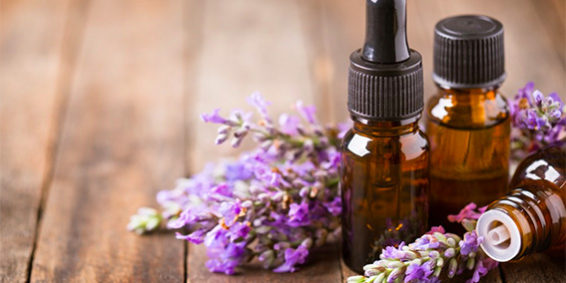“Aromatherapy is a branch of botany that works with the use and application of essential oils and hydrosols. It has been among us for thousands of years, especially in Asian and African cultures, but it is in recent decades that it has spread throughout the world and is becoming popular for daily use and as an alternative therapy to various health conditions.”
Essential oils are extracted from plants. These accumulate in the aromatic glands found in the roots, leaves, trunk, fruits, flowers or seeds. They are concentrated organic substances that contain the most healing components of the plant.
To understand well how aromatherapy works and its effects, it is important to talk about the deep limbic system that is in the center of our brain and its size is like that of a walnut. This is in charge of regulating our emotions and thoughts, both negative and positive. A relaxed, underactive limbic system results in a more positive and optimistic mood. On the contrary, in a hot, inflamed or hyperactive limbic system, depression and negative thoughts prevail, this produces an emotional overshadowing which becomes a filter through which we interpret the events of the day. What causes us to perceive any situation in a negative way, even if it is positive.
But how is this related to aromatherapy? Well, it is simple. The sense of smell is the only one of the five sensory systems that connects directly to the deep limbic center of the brain. In addition, an important characteristic of essential oil is that it is highly volatile. This means that when smelling them or putting them in a diffuser, the oil particles travel through our nose and are received by the olfactory nerve that is directly connected to the center of the brain. When these particles reach our brain directly, they calm the hyperactivity of the limbic system, also calming the feeling of depression, anxiety, sadness, irritability, etc.
A common example happens in us women with Premenstrual Syndrome. Around the fifth and tenth day before menstruation, the deep limbic system becomes highly activated due to hormonal change. This is why we feel more irritable and typically perceive our reality through a negative filter.
It also happens during menopause. Due to the hormonal imbalance, this depression and sudden mood swings are born in the limbic system, for which there are essential oils that help us calm it down. For example, Frankincense essential oil that works effectively by stimulating positive emotions in the brain and relaxing the mind. We also have the option of using Patchouli, to combat depression, anxiety and find an optimal emotional balance. But the star, during menopause, is the essential oil of Clary Sage, it doesn’t merely help regulate emotions but also promotes hormonal balance.
At these times, one recommendation is to place between 7 and 10 drops of one of these oils in a diffuser for thirty minutes to an hour, two to three times a day. They can also be inhaled directly by putting a drop of one of them in an aromatherapy pendant or a nasal inhaler.
We have the support of aromatherapy during menopause. Aromatherapy is very helpful to cope with annoying symptoms or even to prevent them. We have in essential oils an immense healing power since they work holistically. They provide physical, mental and spiritual well-being. The purpose of aromatherapy is to restore the state of natural balance to our body, mind and spirit.
Mary Carmen Zaidan.







Excellent information! I believe in the benefits of EO. : )